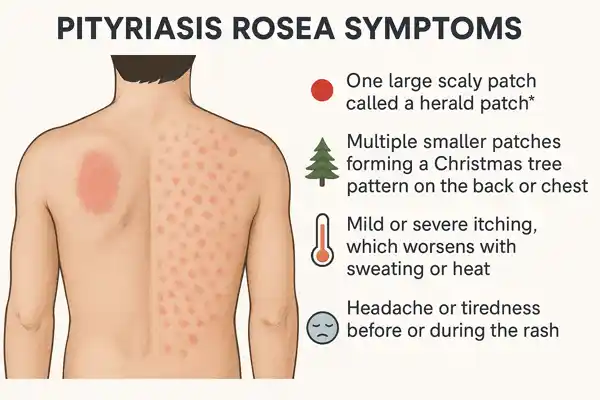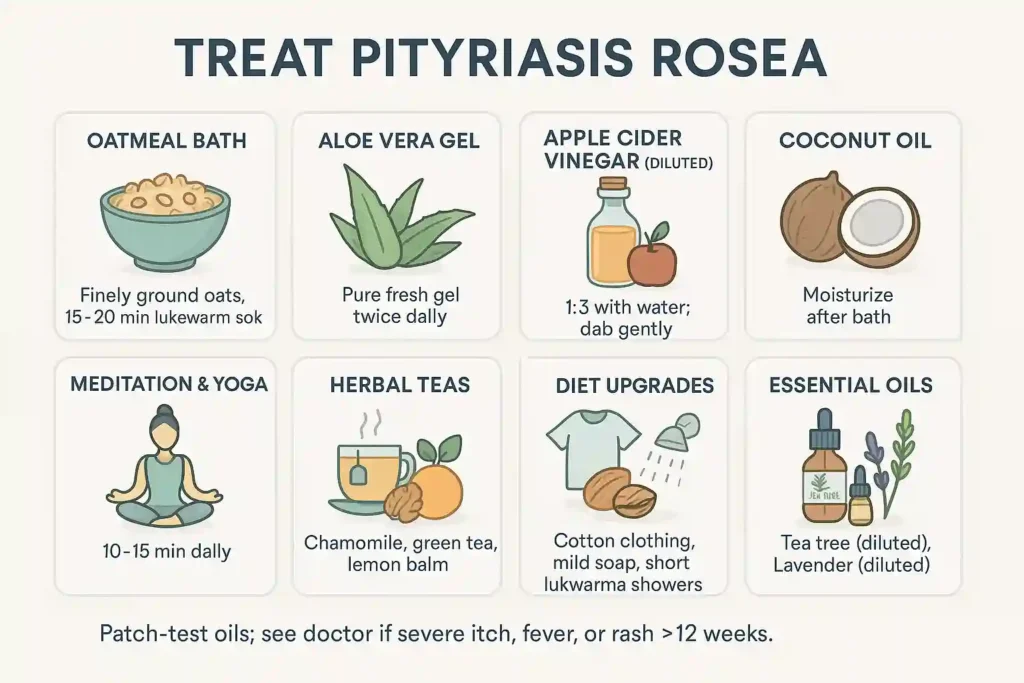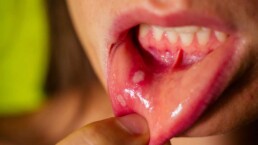Understanding Pityriasis Rosea
What is Pityriasis Rosea?
Pityriasis rosea is a type of skin rash that appears in stages. It usually begins with a single large spot called a herald patch. After several days, more spots appear on the body, often following a pattern on the chest or back.
Table of Contents
ToggleMany people wonder what is pityriasis rosea? It is not dangerous, and it does not spread from person to person. Nonetheless, it can be rather uncomfortable, especially if the itching is severe.
This rash is more common among teenagers and young adults. It generally resolves independently within 6 to 12 weeks. Even though it disappears naturally, many people seek pityriasis rosea treatment to control itching and irritation.
Causes and Pityriasis Rosea Symptoms

Physicians are unsure about the exact origins of pityriasis rosea. The most accepted idea is that it is linked to a viral infection, most likely in the herpes family.
Unlike other skin disorders, it does not spread through direct contact. Stress, weak immunity, or seasonal changes may trigger the outbreak in some people.
Pityriasis rosea symptoms can vary but include:
- One large scaly patch called a herald patch
- Multiple smaller patches forming a Christmas tree pattern on the back or chest
- Mild or severe itching, which worsens with sweating or heat
- Headache or tiredness before or during the rash
The symptoms can confuse patients since they look similar to eczema, ringworm, or psoriasis.
That is why understanding pityriasis rosea vs eczema natural care is important before choosing remedies.
Conventional Pityriasis Rosea Treatment Options
Most dermatologists recommend patience, since the rash heals with time. When the itching is very strong, doctors may suggest mild corticosteroid creams, antihistamines, or light therapy.
However, many individuals prefer to treat pityriasis rosea at home using natural methods. These remedies avoid harsh chemicals and are suitable for sensitive skin.
Home Remedies to Treat Pityriasis Rosea

Natural methods reduce irritation, improve comfort, and support skin recovery. They are safe, easy to use, and can be combined with medical advice when necessary.
Oatmeal Bath for Soothing Relief
An oatmeal bath is one of the most trusted soothing skin remedies. Oatmeal contains compounds called avenanthramides which reduce inflammation.
Preparation and Application
Grind one cup of plain oats into a fine powder. Mix it with lukewarm water and soak for 20 minutes. Gently pat your skin dry. Repeating this daily helps reduce irritation and is considered one of the best itchy rash home treatment methods.
Example: Many mothers use oatmeal baths for children with chickenpox because it eases constant scratching. The same soothing effect works for pityriasis rosea.
Aloe Vera Gel to Reduce Inflammation
Fresh aloe vera gel is rich in antioxidants, vitamins, and anti-inflammatory compounds. It calms burning, reduces redness, and hydrates skin. Apply a thin layer of pure gel directly over the rash twice daily. This helps speed recovery and keeps skin moist.
People with sensitive skin should use fresh aloe from the leaf rather than packaged gels, which may contain alcohol that dries the skin.
Apple Cider Vinegar for Improved Skin Health
Apple cider vinegar has antimicrobial properties that may reduce skin irritation. It also balances the skin’s pH.
Dilution and Usage Guidelines
Mix one tablespoon of apple cider vinegar with three tablespoons of water. Soak cotton in the solution and dab gently on the rash. Avoid direct undiluted vinegar since it can sting. This is often part of a viral skin rash natural cure routine.
Some people even add a spoon of vinegar to warm water and drink it, which may help balance digestion and immunity.
Coconut Oil for Moisturizing Dry Skin
Coconut oil is a natural moisturizer rich in lauric acid. It locks in moisture, reduces flakiness, and improves healing. Apply it daily after bathing. This method supports skin hydration and healing while working as one of the best natural skin healing oils.
In tropical countries, coconut oil is a traditional solution for dry and inflamed skin. Its fatty acids protect the barrier of the skin, reducing irritation.
Stress Management Techniques
Stress often worsens skin flare-ups. Managing stress plays a major role in pityriasis rosea treatment.
Meditation and Yoga
Deep breathing exercises, yoga stretches, and short meditation practices can calm the body. By lowering stress hormones, skin heals faster.
Herbal Teas and Natural Supplements
Chamomile tea, green tea, and lemon balm are known anti-inflammatory herbs for skin. Drinking these teas daily improves relaxation and supports immunity.
Herbal teas also reduce itching at night, making it easier to sleep. These are excellent tools for stress management for skin conditions.
Diet and Lifestyle Changes
Healthy food habits support the immune system. Skin recovers better with proper nutrition.
Key Dietary Guidelines
- Eat more fresh fruits such as oranges and papayas, which are high in Vitamin C.
- Add leafy greens and nuts that provide zinc and Vitamin E.
- Drink enough water every day.
- Avoid processed snacks, excess sugar, and spicy dishes that worsen itching.
- A balanced diet also helps in boosting immunity for skin recovery.
Lifestyle Adjustments for Managing Pityriasis Rosea
Wear light cotton clothes to avoid sweating. Use mild, fragrance-free soaps instead of harsh ones. Take shorter, lukewarm showers since hot water strips away natural oils. These small steps are helpful for rash treatment without steroids.
Essential Oils for Pityriasis Rosea
Using essential oils for pityriasis rosea can provide comfort if used safely.
Tea Tree Oil: Natural Antiseptic and Anti-Inflammatory
Tea tree oil has antimicrobial properties. Dilute a few drops in coconut oil and apply gently on patches. This reduces redness and itching without irritating the skin.
Lavender Oil: Calming and Soothing for Skin
Lavender oil provides relaxation. When diluted with olive or almond oil, it calms itching and hydrates skin. It is one of the most effective soothing skin remedies.
The Bottom Line
Pityriasis rosea is a harmless but uncomfortable rash. While it fades naturally, the itching can affect sleep and daily life. Natural treatments such as oatmeal baths, aloe vera, apple cider vinegar, and coconut oil, and essential oils for pityriasis rosea make recovery easier.
Healthy diet, stress management, and gentle lifestyle adjustments add further support. These remedies are safe and gentle options for anyone who prefers pityriasis rosea treatment at home.
FAQ
How to heal pityriasis rosea naturally?
Natural methods include oatmeal baths, aloe vera gel, coconut oil, apple cider vinegar, stress control, and dietary support for faster skin recovery.
How do you treat pityriasis rosea in pregnancy?
Pregnant women should avoid strong medicines. Safe remedies include oatmeal baths, aloe vera, coconut oil, mild soaps, cotton clothing, and hydration to ease itching.
What should I eat if I have pityriasis rosea?
Eat vitamin-rich foods like oranges, papayas, spinach, nuts, and whole grains. Avoid alcohol, junk food, and spicy dishes to reduce irritation and help skin repair.
What vitamin is good for pityriasis rosea?
Vitamin C improves collagen, Vitamin D supports immunity, and zinc helps skin repair. These nutrients make recovery faster and reduce rash-related irritation naturally.
How to get pityriasis rosea to stop spreading?
Keep the skin cool, avoid scratching, wear loose cotton clothing, use mild soaps, and apply soothing natural remedies daily for comfort and recovery support.
What soap is good for pityriasis rosea?
Fragrance-free, mild, moisturizing soaps are best. Avoid harsh detergents or antibacterial soaps since they dry the skin and worsen itching with regular use.
What ointment is good for pityriasis rosea?
Natural ointments with aloe vera or coconut oil are safe. For severe cases, a doctor may suggest mild steroid creams, but natural options often work well.

This article is medically reviewed by Dr. Chandril Chugh, Board-Certified Neurologist, providing expert insights and reliable health information.
Dr. Chandril Chugh is a U.S.-trained neurologist with over a decade of experience. Known for his compassionate care, he specializes in treating neurological conditions such as migraines, epilepsy, and Parkinson’s disease. Dr. Chugh is highly regarded for his patient-centered approach and dedication to providing personalized care.








